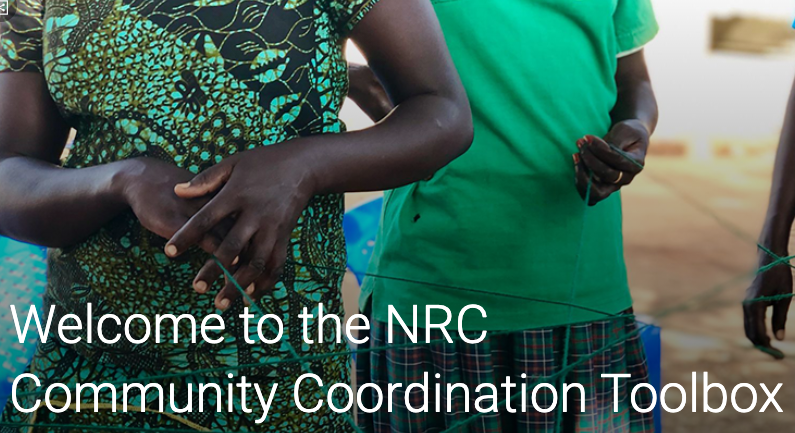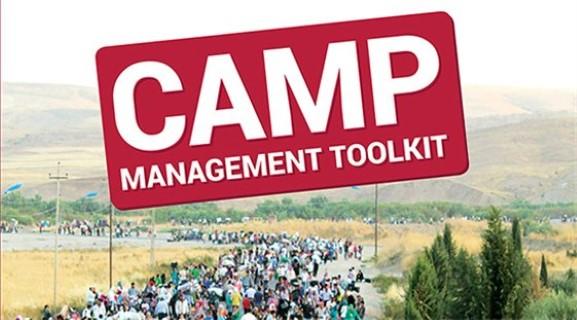Protection is about safety, dignity and rights. It is about people being safe from the violence or abuse during an armed conflict or natural disaster. We work to reduce risks for displaced people and strengthen their capacity for self-protection. From providing lighting in a camp to make it safer for women to move freely, to resolving violence through mediation, we strive to ensure that displaced people can live in safety and dignity, with access to impartial assistance.
Our expertise in protection from violence
Protection in its broadest sense has always been part of our DNA. Whether we are helping people access their rights through our legal assistance work, protecting children through providing safe spaces to learn and play, or providing families with a safe place to live, protection is at the heart of what we do.
We ensure that all our activities – our programmes as well as our policy and advocacy work – contribute to protection outcomes and meet rigorous standards, so they are safe, participatory, accountable and dignified for the communities and people we serve.
In 2022, we saw a need to focus our work on prevention and response to violence more sharply. Some of the most vulnerable people and communities we work with need specialised support. We provide this in four ways:
1. Community safety and violence prevention
There is growing recognition that the most effective protection measures are those that involve the people and communities at risk from violence and empower them to protect themselves. In many cases, civilians engage daily with armed groups and national authorities to protect themselves, their families and communities. In other cases, they must engage with others within and across their own communities. We support these activities through our civilian self-protection and humanitarian mediation work.
2. Individual protection services
Some protection response services, such as those involving child protection and gender-based violence, are well established and defined. However, many civilians experience protection violations for which there are limited response options. For example, ex-combatants may be targeted because of their links to opposition groups, while older community members may be exploited because of their perceived vulnerabilities. We provide protection case management and individual assistance for those who fall outside the mainstream humanitarian response.
3. Site management
Camps and other settlements for displaced people should be safe environments. We recognise that effective site management leads to a reduction in protection risks and threats. Through our site coordination and community engagement activities, we work to ensure that the assistance and protection provided in these sites are in line with laws, guidelines, agreed standards, and the wishes of the communities themselves.
4. Thought leadership and influence
We work to mobilise and influence the humanitarian community to invest in specialised protection services and consciously contribute to better protection outcomes. We engage in protection monitoring and take leadership roles in protection coordination systems and policy mechanisms.
Protection is about safety, dignity and rights. It is about people being safe from the violence or abuse during an armed conflict or natural disaster. We work to reduce risks for displaced people and strengthen their capacity for self-protection. From providing lighting in a camp to make it safer for women to move freely, to resolving violence through mediation, we strive to ensure that displaced people can live in safety and dignity, with access to impartial assistance.
Our expertise in protection from violence
Protection in its broadest sense has always been part of our DNA. Whether we are helping people access their rights through our legal assistance work, protecting children through providing safe spaces to learn and play, or providing families with a safe place to live, protection is at the heart of what we do.
We ensure that all our activities – our programmes as well as our policy and advocacy work – contribute to protection outcomes and meet rigorous standards, so they are safe, participatory, accountable and dignified for the communities and people we serve.
In 2022, we saw a need to focus our work on prevention and response to violence more sharply. Some of the most vulnerable people and communities we work with need specialised support. We provide this in four ways:
1. Community safety and violence prevention
There is growing recognition that the most effective protection measures are those that involve the people and communities at risk from violence and empower them to protect themselves. In many cases, civilians engage daily with armed groups and national authorities to protect themselves, their families and communities. In other cases, they must engage with others within and across their own communities. We support these activities through our civilian self-protection and humanitarian mediation work.
2. Individual protection services
Some protection response services, such as those involving child protection and gender-based violence, are well established and defined. However, many civilians experience protection violations for which there are limited response options. For example, ex-combatants may be targeted because of their links to opposition groups, while older community members may be exploited because of their perceived vulnerabilities. We provide protection case management and individual assistance for those who fall outside the mainstream humanitarian response.
3. Site management
Camps and other settlements for displaced people should be safe environments. We recognise that effective site management leads to a reduction in protection risks and threats. Through our site coordination and community engagement activities, we work to ensure that the assistance and protection provided in these sites are in line with laws, guidelines, agreed standards, and the wishes of the communities themselves.
4. Thought leadership and influence
We work to mobilise and influence the humanitarian community to invest in specialised protection services and consciously contribute to better protection outcomes. We engage in protection monitoring and take leadership roles in protection coordination systems and policy mechanisms.
Since 2005, NRC has been one of the leading agencies in camp management. Drawing on our expertise, we were one of the few to help develop the Camp Management Toolkit. The toolkit, launched in 2015, gives official guidelines on the setup and running of camps and settlements, both in emergencies and long-term situations.

Community Coordination Toolbox
The NRC Community Coordination Toolbox, launched in 2020, is a repository of carefully developed and tested tools. It aims to help displaced communities create systems for meaningful and inclusive participation in coordination of services and assistance, with a particular focus on achieving equal participation of women and marginalised groups.
Latest news
Latest reports
NRC's areas of expertise
-
EducationDisplacement has a devastating impact on learning, and often leads to education being interrupted or denied. NRC works to ensure that children and youth forced to flee can access high-quality, safe, inclusive and relevant learning opportunities.
-
Information, counselling and legal assistance (ICLA)People forced to flee frequently lose access to rights and services. Legal frameworks can either perpetuate displacement and discrimination or serve as instruments of protection and durable solutions. NRC assists people to navigate these frameworks, so they can exercise their rights.
-
Livelihoods and food securityDuring conflicts and disasters, food production and market systems face collapse. People can lose their assets and even their ability to earn a living. NRC works to ensure that people forced to flee can exercise their right to an adequate standard of living.
-
Protection from violenceWhen people are forced to flee their homes, they often experience ongoing threats to their safety. NRC help to ensure displaced people are protected, by preventing and responding to violence, coercion, and actions taken by others to deny them their rights.
-
Shelter and settlementsLosing one’s home is devastating. Many people forced to flee are struggling to find a safe place to stay, leaving them exposed to risks like weather, illnesses and violence. NRC supports people with housing within safe and healthy settlements.
-
Water, sanitation and hygieneAccess to clean water and sanitation facilities is among the most urgent of all needs. Without proper sanitation, water supplies can become contaminated and disease can spread rapidly. NRC works to ensure that people forced to flee have access to safe water.









